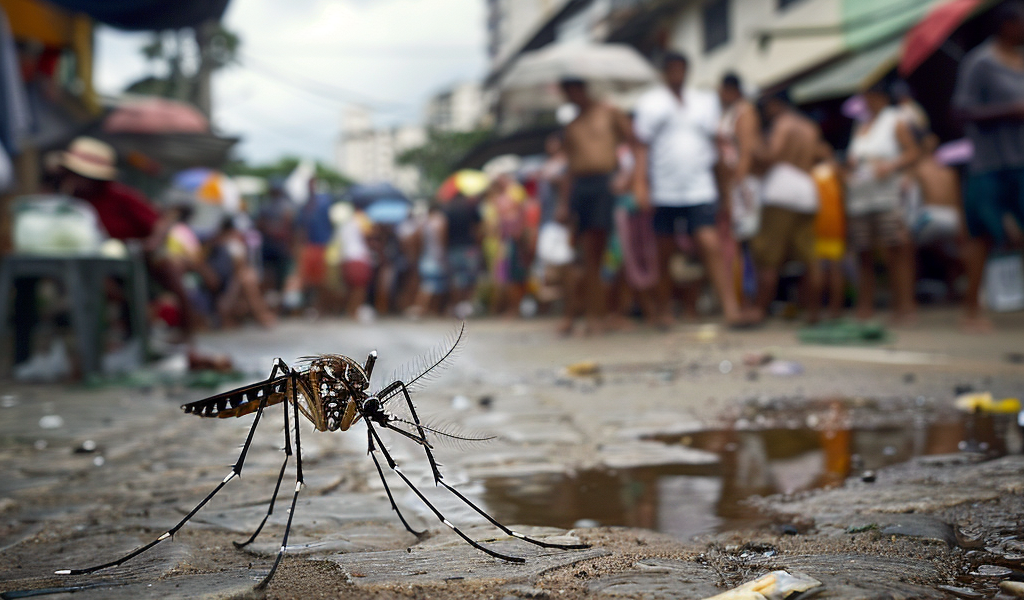Brazil is facing its biggest-ever outbreak of dengue fever, with nearly 600,000 cases reported in the first few weeks of 2024 alone. The surge in cases is attributed to the combined impact of global warming and El Niño, creating favorable conditions for the Aedes aegypti mosquito, which spreads the dengue virus.
Scientists had previously predicted that climate change would lead to a significant increase in dengue cases worldwide, and this is now becoming a reality. Latin America is witnessing an unprecedented level of dengue cases, with Brazil being particularly hard hit.
The dengue virus causes severe flu-like symptoms and can be fatal, especially if it progresses to dengue haemorrhagic fever. The symptoms include high fever, headache, body aches, nausea, rash, and painful muscle spasms, leading to its colloquial name, ‘breakbone fever’.
The recent outbreak in Brazil coincided with the annual carnival, attracting millions of tourists to Rio de Janeiro. This posed additional challenges in relaying public health messages, as the Aedes aegypti mosquito, which carries the dengue virus, also transmits the Zika virus. Pregnant women are particularly at risk, as the virus can be transmitted to their unborn babies, resulting in serious complications.
The surge in dengue cases has prompted the authorities to declare public health emergencies in densely populated areas. The rise in temperatures and heavy rains have created ideal breeding conditions for the mosquitoes, making it essential for individuals to take preventive measures such as wearing protective clothing to minimize the risk of being bitten.
According to the World Health Organization (WHO), dengue cases have been on the rise over the past two decades, with a ten-fold increase from 500,000 to 5.2 million cases between 2000 and 2019. Latin America accounts for 80% of these cases, underscoring the urgency of addressing this public health challenge.
The gravity of the situation has prompted Brazil to expedite the rollout of dengue vaccines in an effort to mitigate the impact of the outbreak. The convergence of climate change and public health crises underscores the need for proactive measures to address emerging threats and safeguard public health.





